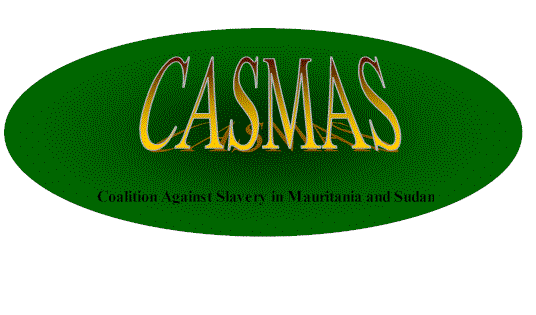|
 | Where is Sudan? |
Located in northeast Africa, the Sudan is the largest
country in Africa. The Nile River extends the entire length of the country (more
than 1000 miles),l following north from Uganda through the Sudan into Egypt. Sudan's
capital is Khartoum and is located where the White and Blue Niles meet. With a
population of 31 million, the Sudan is sparsely populated, and its vast distances
present a particular problem for travel and development.
 | What is the economic base? |
Cotton, gum Arabic (used in candy and cola), peanuts,
sesame, and other agricultural products are the Sudan's min exports. Oil fields in
southern Sudan are being exploited by Arakis Energy Corporation, a Canadian company, which
appears to be taking advantage of the political situation. The water and silt of the
Nile are essential for agriculture, and the Nile is important for transportation as well.
 | What is the Sudan's colonial history? |
Turkish-Egyptian control in the nineteenth century was
interrupted by the nationalist Mahdist revolt against foreign influence in 1881, but the
Sudan was re-conquered by Anglo-Egyptians forces in 1898. During the Anglo-Egyptian
rule, northern and southern Sudan were governed separately, with a conscious policy of
excluding Arab-Islamic influence in he South. Independence came in 1956, but the
colonial legacy of two separate states--added to differences of history, culture,
religion, race, and geography--led to civil war that same year.
 | Why is Sharia Islamic law so important in the Sudan? |
The diversity of Islamic points of view in the North, and
the virtual absence of Islam in the South, are hidden by Sharia law, which was imposed on
the entire country by President Nimeiri in 1983. The current Khartoum government
wants to bring the non-Muslim Black South in line with Sharia law, laid down and
interpreted by conservative Muslim clergy. The Black animist and Christian South
remembers many years of slave raids by Arabs from the north and east and resists Muslim
religious rule and the perceived economic, cultural, and religious expansion behind it.
 | Does slavery still exist in the Sudan? |
In April 1996, UN Special Representative for the Sudan,
Gaspar Biro, reported "an alarming increase...in cases of slavery, servitude, slave
trade, and forced labor." In June 1996, two reporters from the Baltimore Sun
illegally visited the Sudan. They produced a series of articles in the Sun called
"Witness to Slavery," in which they documented slavery in the Sudan. In
fact, they bought two young slaves and set them free.
 | What does the South see as an equitable political
arrangement? |
The debate has been going on since before Independence.
Southerners at various times have proposed total separation, federation, or a
unified secular state with freedom for all minorities. This struggle has been the
fuel for two civil wars, the first ending in 1972 with a proposed federation. That
solution dissolved into a second war in the mid-1980s, with disastrous human rights
violations continuing on both sides.
 | What is the status of women and girls? |
War and famine have affected the traditional systems and
laws for protecting women's rights, and the condition of women and girls has worsened.
In the South, half the women refugees are widows. Population displacement has
increased prostitution, rape, and sexually transmitted diseases. Child labor is another
form of abuse in the Sudan, and female children are forced into early marriages, which
endanger their health. |
